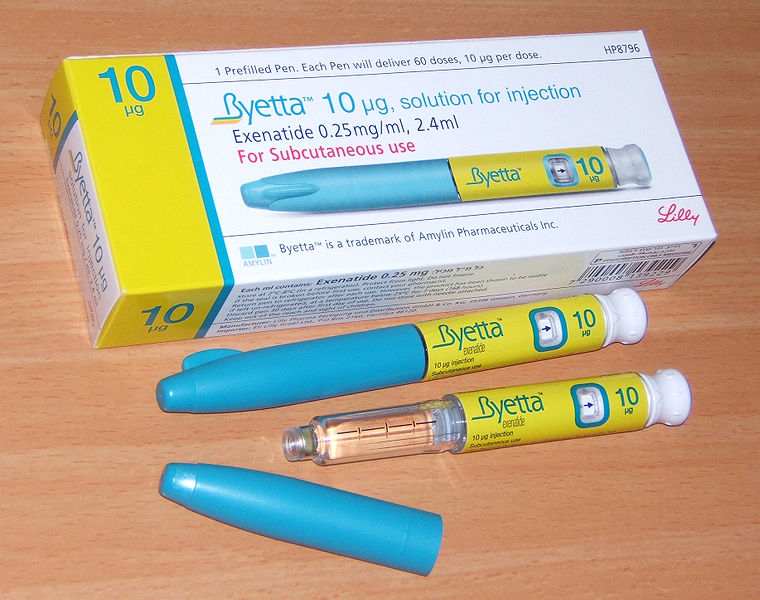The type 2 diabetes drug exenatide (Bydureon, Byetta, AstraZeneca) has potential disease-modifying effects in Parkinson's disease, results of a randomized, double-blind, placebo-controlled trial suggest.
Study results show the glucagon-like peptide-1 (GLP-1) receptor agonist improved off-medication motor scores in patients with Parkinson's disease, and the benefits persisted for several weeks after the drug was discontinued.
"All the current treatments we have for Parkinson's disease help manage the symptoms but don't affect the progressive nature of the underlying disease, so finding a treatment that could actually slow down disease progression is one of the most important unmet needs in Parkinson's treatment," first author, Dilan Athauda, MBBS, from University College London Institute of Neurology and The National Hospital for Neurology and Neurosurgery in London, United Kingdom, told Medscape Medical News.
The study was published online August 3 in The Lancet.
Exenatide has shown neuroprotective effects in several animal models of Parkinson's disease. And in a pilot study of patients with moderately advanced Parkinson's disease, exenatide was associated with improvements in motor and cognitive function over 12 months (J Parkinsons Dis. 2014;4:337-344).
The current trial enrolled 62 patients with idiopathic Parkinson's disease who had wearing-off motor fluctuations on dopaminergic therapy and were at Hoehn and Yahr stage 2.5 or less when receiving treatment.
Participants were randomly allocated to subcutaneous injections of exenatide 2 mg (n = 32) or placebo (n = 30) once weekly for 48 weeks in addition to their regular medication, followed by a 12-week washout period.
The primary outcome was the score of the motor subscale (part 3) of the Movement Disorders Society Unified Parkinson's Disease Rating Scale (MDS-UPDRS) 12 weeks after discontinuation of study drug treatment (ie, at 60 weeks). This outcome was chosen to detect potential effects of exenatide on underlying disease progression as assessed by motor symptom severity after overnight withdrawal of symptomatic medications, Dr Athauda explained.
At 60 weeks, off-medication scores on the MDS-UPDRS motor subscale had improved by 1.0 points (95% confidence interval [CI], –2.6 to 0.7 points) in the exenatide group and worsened by 2.1 points (95% CI, –0.6 to 4.8 points) in the placebo group, for an adjusted mean difference of –3.5 points (95% CI, –6.7 to –0.3 points; P = .0318).
New Therapeutic Target?
"At the end of 48 weeks, when assessing patients' movements in the off-medication state, the placebo group had gradually declined, as expected, while those patients treated with exenatide had slightly improved. The exenatide-treated group maintained this advantage 12 weeks after we stopped the exenatide injections, and it was no longer detectable in the serum," said Dr Athauda.
Medscape Medical News © 2017
Cite this article: Diabetes Drug May Slow Parkinson's Disease - Medscape - Aug 14, 2017.
Megan Brooks
/August 14, 2017
